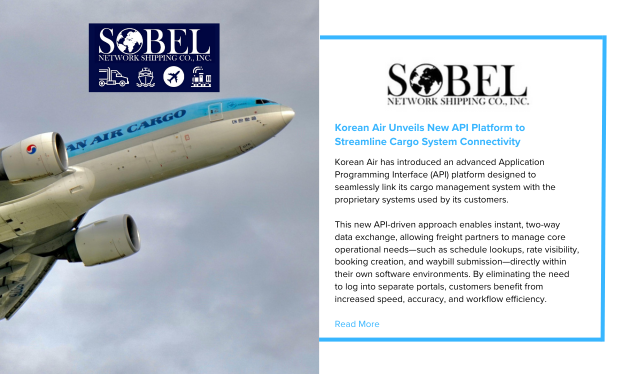Korean Air has introduced an advanced Application Programming Interface (API) platform designed to seamlessly link its cargo management system with the proprietary systems used by its customers.
This new API-driven approach enables instant, two-way data exchange, allowing freight partners to manage core operational needs—such as schedule lookups, rate visibility, booking creation, and waybill submission—directly within their own software environments. By eliminating the need to log into separate portals, customers benefit from increased speed, accuracy, and workflow efficiency.
A company representative emphasized the strategic importance of the initiative, stating that API integration is a vital component of Korean Air’s ongoing digital transformation efforts. The airline aims to enhance transparency, streamline logistics processes, and reinforce its role as a global leader in air cargo services.
The move comes shortly after Korean Air finalized its $1.3 billion acquisition of Asiana Airlines in December, marking a major step forward in its long-term growth strategy. The airline noted that the upgrade also reflects rising e-commerce volumes and growing demand for more integrated, real-time logistics solutions.
Korean Air currently operates an extensive global cargo network serving 116 cities across 39 countries. Its freighter fleet includes 23 dedicated aircraft, such as the Boeing 777F and 747-8F, among a total fleet of 164 aircraft.
The carrier has also made significant investments in future expansion, including an order for eight new Boeing 777-8 freighters and a recent conversion of seven Airbus A350 passenger aircraft into the freighter variant.
At its Incheon International Airport hub, Korean Air Cargo manages a 100,000 sq. m. terminal and maintains dedicated cargo facilities in key locations including Los Angeles, New York, Narita, and Osaka. The airline also operates the Incheon-based Cool Cargo Center, a specialized temperature-controlled facility capable of handling over 150 tons of fresh and perishable goods.


